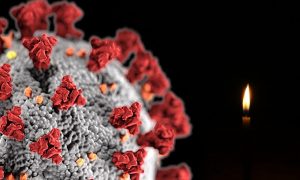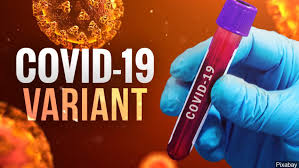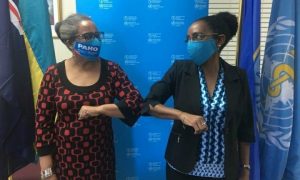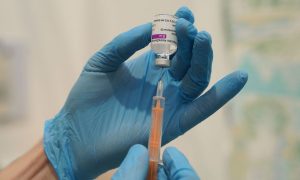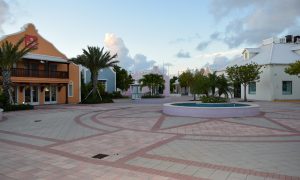PAHO conducting pilot studies in four countries to help make the most of these new diagnostics. Millions of these tests will be made available to countries of the Region at an accessible price via PAHO’s Strategic Fund
Washington D.C. – STATEMENT from October 14, 2020 (PAHO) – The new affordable, reliable antigen diagnostic tests recently approved by WHO that can be performed anywhere are set to transform the region’s COVID-19 response by allowing health workers to carry out accurate, rapid testing, even in remote communities, Pan American Health Organization (PAHO) Director Carissa F Etienne, said today.
Unlike previous rapid, antibody tests, which can show when someone has had COVID-19 but often give a negative result during the early stages of infection, the new rapid, antigen tests are much more accurate in determining if someone is currently infected.
“By providing results quickly, the new test empowers frontline health workers to better manage cases by isolating patients to prevent further spread and to begin treatment immediately,” Etienne said in a press briefing. “If distributed widely, this new test will transform our COVID response.”
Etienne said the diagnostic tests will be particularly useful in hard to reach areas without easy access to a laboratory, which have been disproportionally impacted by the pandemic.
PAHO’s Strategic Fund
“Today, PAHO can provide access to hundreds of thousands of these tests via PAHO’s Strategic Fund, with millions more expected in the coming weeks,” said Etienne.
The Strategic Fund is a regional technical cooperation mechanism for pooled procurement of essential medicines and supplies and is a central component of PAHO’s strategy to move towards Universal Health.
A pilot study is also currently being conducted by PAHO in Ecuador, El Salvador, Mexico and Suriname. “With support from WHO, we will be providing these diagnostic tests free of cost as we keep a close eye on how they’re used. The data collected via this study will help countries within and outside of our region make the most of these new diagnostics,” Etienne said.
In the meantime, PAHO has also begun helping countries implement new testing protocols so that health workers know how to use the new diagnostics and report their results.
The PAHO Director urged countries to “bring these new tests to the hospitals and health clinics on the frontlines of our fight against the virus. But it’s important to remember that no single innovation is a panacea,” she said.
COVID-19 update in the Americas
More than 18 million COVID-19 cases and more than 590,000 deaths have been reported and “The state of the pandemic in the Americas remains complex,” Etienne said. Canada is facing a second wave, cases in Argentina continue to accelerate, the Caribbean is seeing a high number of cases, and in many countries, the pandemic has also moved to less populated areas, she noted.
“Since the pandemic began more than nine months ago, we have known that to beat this virus, we must transform our public health response. We need public health measures to prevent community transmission; fast, accurate and affordable diagnostic tests to determine when someone has been infected with COVID 19; new medicines to help COVID patients get better and, ultimately, a safe and effective vaccine,” Etienne said.
PCR diagnostic tests, which are highly accurate and must be conducted in lab settings remain the gold standard for testing, but delays in getting results mean that people run the risk of infecting others while they await results, she noted. “The new tests will
enable primary healthcare workers, whether they’re working in the middle of the Amazon, or in an urban center, to diagnose and care for patients immediately, stopping further infections in their tracks. And that is the gamechanger,” Etienne said.
She added that “it remains critical to stay the course in every aspect of our COVID response. We must continue to adhere to public health measures to prevent the spread of the virus. We must continue to test and isolate cases and trace their contacts to prevent new infections. And we must continue to let data underpin our actions to prevent any new cases from spreading out of control.”
Innovations must reach the people who need them most, and “To capitalize on the power of this new diagnostic, countries must make them available and accessible to everyone – regardless of who they are or where they live – to bring us closer to our promise for health for all,” Etienne said. The tests form part of the WHO Access to COVID-19 Tools (ACT) Accelerator to develop, procure and distribute critical new tools to fight the pandemic
Press Release, Contact:
Leticia Linn
Sebastian Oliel
Ashley Baldwin
Daniel Epstein
mediateam@paho.org
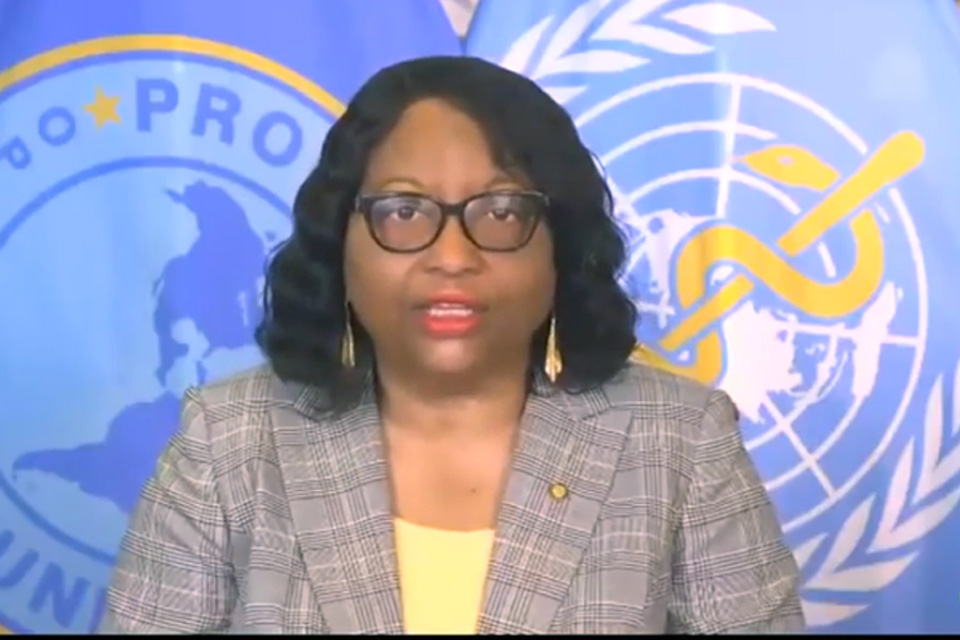

 Caribbean News7 days ago
Caribbean News7 days ago
 Caribbean News7 days ago
Caribbean News7 days ago
 Caribbean News1 week ago
Caribbean News1 week ago
 Caribbean News7 days ago
Caribbean News7 days ago
 Bahamas News7 days ago
Bahamas News7 days ago
 News7 days ago
News7 days ago
 Bahamas News1 week ago
Bahamas News1 week ago
 News7 days ago
News7 days ago
